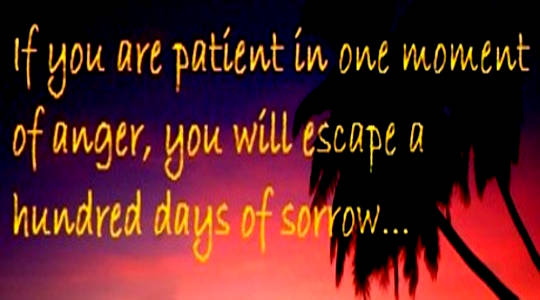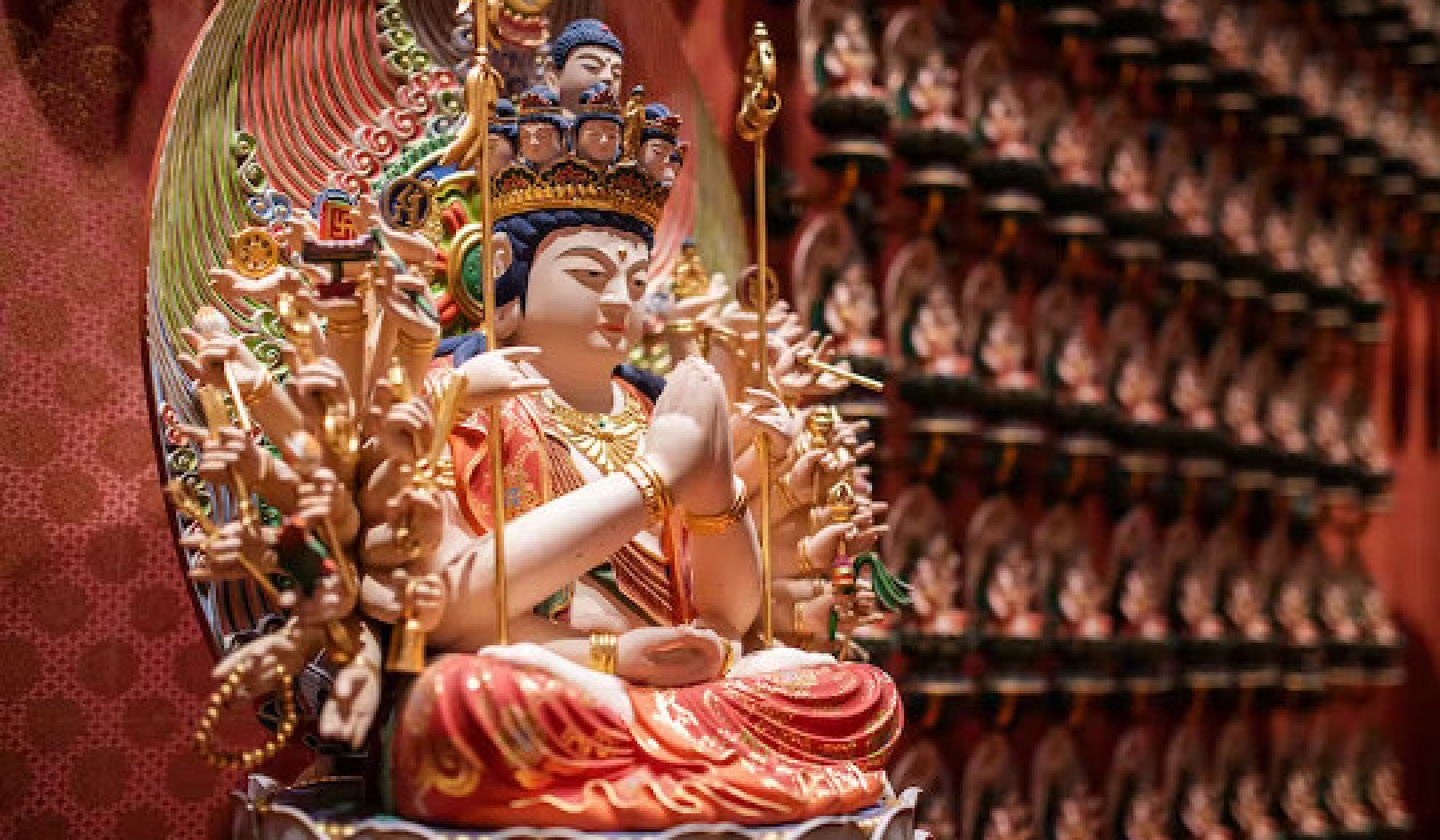
Patience is the ability to idle your motor when
you feel like stripping your gears. -- Michael LeFan
It was one of those grocery store moments that you’ve likely witnessed. A mother, exhausted by a hard day of work and needing to pick up something for dinner, is racing through the aisles, three-year-old in tow. The child, hungry and tired, is pitching a fit. He wants a certain cereal that his mother has already vetoed for being too sugary.
“I want too much sugar, I want too much sugar,” he yells, throwing himself down on the ground. Mom snaps, yanking him up by the arm and dragging him out of the store. Mom, son, and the shoppers observing the scene end up upset.
Anger is the Direct Consequence of Losing Our Patience
It was only when I began to study patience closely that I came to see how anger and patience are related. In fact, anger is the direct consequence of losing our patience. For it is precisely because we don’t have tolerance for something or someone that we get mad:
“Why must you crack your knuckles when you know it drives me crazy?”
“Why do you say ‘lovely’ in that simpering voice to everything that happens?”
“Why is the health insurance system in this country so screwed up that I can’t get a policy for under $800 a month?”
We’re angry because we don’t want to put up with it.
This was a big “aha” for me. I knew that I was often impatient and that I lost my temper sometimes. But I had no idea that the two were related. They seemed like separate weather systems, operating independently of one another. But actually impatience is a continuum, beginning with irritation, leading to anger, and ending in rage.
What that means is that the converse is also true. The more patience we have, the less irritation, anger, and rage we’ll experience.
If the poor mother in the grocery store had been able to summon a bit more patience, she could have avoided striking out. Perhaps she could have laughed at the absurdity of her son’s request for “too much sugar,” offered a distraction, or just stood there calmly until his tantrum ran its course. Any of those options would have been better — for him and for her.
Is All Anger Bad? What About Righteous Anger?
 This is not to say that all anger is bad. We should never put up with exploitation or abuse, and our impatience in that regard is a healthy warning signal that our limits have been violated and we need to seek a safe haven.
This is not to say that all anger is bad. We should never put up with exploitation or abuse, and our impatience in that regard is a healthy warning signal that our limits have been violated and we need to seek a safe haven.
And there’s also virtuous anger when it comes to injustice of all sorts, including, for instance, the inequities of the U.S. health care system, that fuels social change.
What I’m talking about here is the normal irritation and anger we feel toward people, places, or events in our daily lives that come from a lack of reasonable tolerance.
You know what I mean — the patience we need to deal with our parents when they seem not to care at all about what matters to us; the serenity to deal with our children when they’re pushing for an ice cream cone or a tattoo after we’ve said no four times; the persistence to keep on trying with a boss who doesn’t seem to value our work. Or even the patience to enlist someone to help with our health care problem rather than yelling at the poor person at the end of the telephone line.
When we employ patience, we are much better judges of when it is time to rise up in righteous anger and when we should grin and bear something.
There’s an Irish proverb that goes something like this:
“When you are angry, you’re carrying the burden
while the other person is out dancing.”
The more we cultivate patience, the less anger we carry and the more dancing we’ll feel like doing.
©2003, 2013. All rights reserved.
Reprinted with permission of the publisher, Conari Press,
an imprint of Red Wheel/Weiser, LLC. www.redwheelweiser.com.
Article Source
The Power of Patience: How This Old-Fashioned Virtue Can Improve Your Life
by M.J. Ryan.
 In The Power of Patience, M. J. Ryan teaches us how to slow the rush and reclaim the forgotten virtue of patience on a daily basis. She shows how doing so allows us to make better decisions and to feel better about ourselves every day.
In The Power of Patience, M. J. Ryan teaches us how to slow the rush and reclaim the forgotten virtue of patience on a daily basis. She shows how doing so allows us to make better decisions and to feel better about ourselves every day.
Click here for more info or to order this book.
About the Author
 M.J. Ryan is one of the creators of the New York Times bestselling Random Acts of Kindness and the author of The Happiness Makeover, and Attitudes of Gratitude, among other titles. Altogether, there are 1.75 million copies of her titles in print. She is part of Professional Thinking Partners (PTP), an asset-focused consultancy whose expertise is in maximizing thinking and learning individually and in groups. She specializes in coaching high performance executives, entrepreneurs, and leadership teams around the world.
M.J. Ryan is one of the creators of the New York Times bestselling Random Acts of Kindness and the author of The Happiness Makeover, and Attitudes of Gratitude, among other titles. Altogether, there are 1.75 million copies of her titles in print. She is part of Professional Thinking Partners (PTP), an asset-focused consultancy whose expertise is in maximizing thinking and learning individually and in groups. She specializes in coaching high performance executives, entrepreneurs, and leadership teams around the world.




























